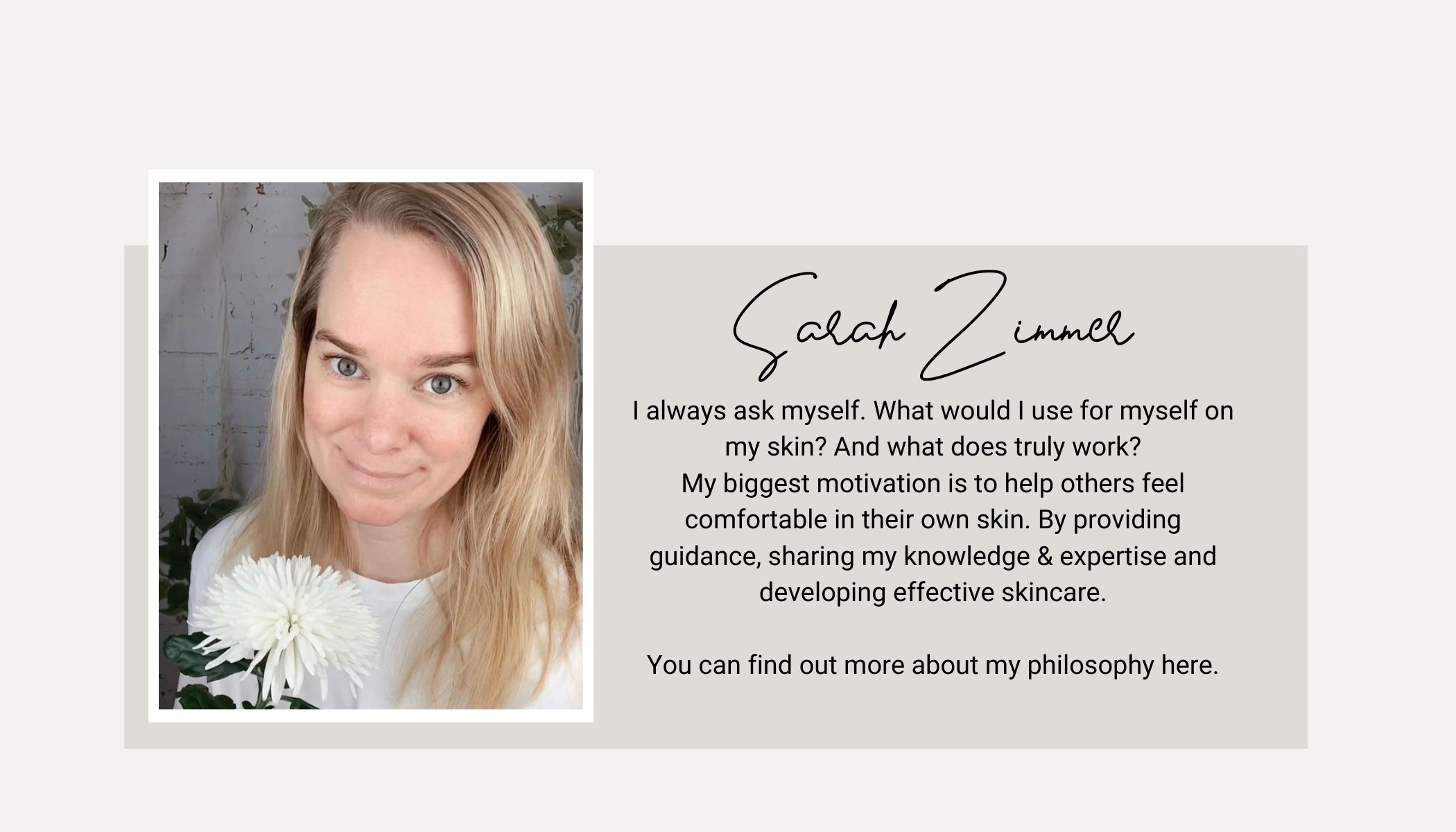Why I decided to use an organic UV Filter
Why did we decide to use an organic UV filter in our Everyday Sun Cream SPF 50?
For sunscreen products, the choice lies between organic ("chemical") and inorganic ("mineral") UV-Filters. Both types of UV filters - organic and inorganic - work in exactly the same way. Both absorb and have reflective properties.
Beyond "Natural": A typical association connected to the phrase “mineral UV filters” is that these are “natural” compounds. Again, this is a wrong perception. While mineral filters (zinc oxide and titanium dioxide) are often perceived as such, the majority of it is produced synthetically in a lab. Titanium dioxide and zinc oxide as such occur naturally in a limited amount, but not in a form that can be utilized in sunscreens. Titanium dioxide and zinc oxide for utilization in sunscreens are chemical modifications of minerals and ores, which are neither allowed for use in cosmetics nor could they protect against UV radiation. The production processes are energy-intensive and require high temperatures and highly reactive chemicals like sulfuric acid and chlorine.
I do have my fingers on the pulse regarding the latest research to make the production of mineral UV more environmentally friendly and more "natural". Follow me on Instagram @nayaglow, sign up to our newsletter or subscribe to my YouTube Channel and I will keep you posted.
However....
Whether a UV filter is mineral or not is not relevant for their main function, namely the protection against UV radiation to protect you from the harsh sun-rays. What have been my other concerns at this stage in developing with an inorganic UV-filter:
Photocatalysis
Inorganic filters act as photo-catalysts. This means they generate free radicals upon sunlight exposure, potentially negating some of their protective benefits. You can source coated Zinc Oxide and Titanium Dioxide which is typically based on a polymer film - which I wasn't comfortable using at this stage. Thus, it is important to always wear a good antioxidant serum under your inorganic filters.
Reef Safety
While commonly touted as reef-safe, research suggests both chemical and mineral filters can harm marine life. zinc oxide and titanium dioxide are not far behind. As they generate free radicals, that also harm the fragile coral reefs. All the organic filters we use have been ranked with a low environmental impact.
Limited Reflection
All insoluble UV filters, whether organic or inorganic, exhibit some degree of reflection due to their composition (crystals made of many molecules). More importantly, the reflective ability only contributes around 5-10% to a UV Filter's overall protection.
Absorption is Key when it comes to UV filters
The primary mechanism, for both organic and inorganic, soluble and insoluble filters, is absorption. During absorption, the filter absorbs the harmful UV radiation and releases it as heat, effectively shielding your skin.
Inhalation Risks
Toxicologists advise against inhaling mineral filters, particularly in powder or spray form. Titanium Dioxide has caused concerns among toxicologists when inhaled.
Inclusivity Matters
Mineral filters, especially those containing high levels of titanium dioxide, can leave a white cast on darker skin tones.
Texture
Inorganic Filters tend to be thicker, making applications less user-friendly and certainly the reapplication a nightmare.
Sensitive Skin
The modern organic filters we have chosen to use in our everyday sunscreen are suitable to be used by sensitive skin. They neither cause burning in your eyes nor cause a reaction. Unless you have hyper-sensitive skin, our organic filters are suitable for sensitive and stressed skin.
Our Choice: A Measured Approach
With careful consideration of these factors, we have chosen an organic-based UV filter for our Everyday Sun Cream SPF 50+. We believe this is the best current option, balancing efficacy, skin tone inclusivity, texture and environmental impact. At the end of the day, if you don't enjoy wearing your sunscreen you won't apply it. And this has been the goal for me when we started on this journey. Watch this space.
Transparency and Continuous Improvement
We recognise that no single solution is perfect. I am committed to ongoing research and development to find better solutions in the future and have my finger on the latest research. I see the need for different types of sunscreen products and am committed to investing. Our sunscreen is just one piece of your larger sun protection strategy. Sun-protective clothing, seeking shade, sun hats, sunglasses and limiting sun exposure are all crucial. It’s a commitment to continual adaptation and responsiveness, aiming for the optimal balance between efficacy, inclusivity, and environmental consciousness.
This journey is about finding better solutions, together. And we are grateful you are taking this journey with us. THANK YOU!
Love,
Sarah xox











Leave a comment